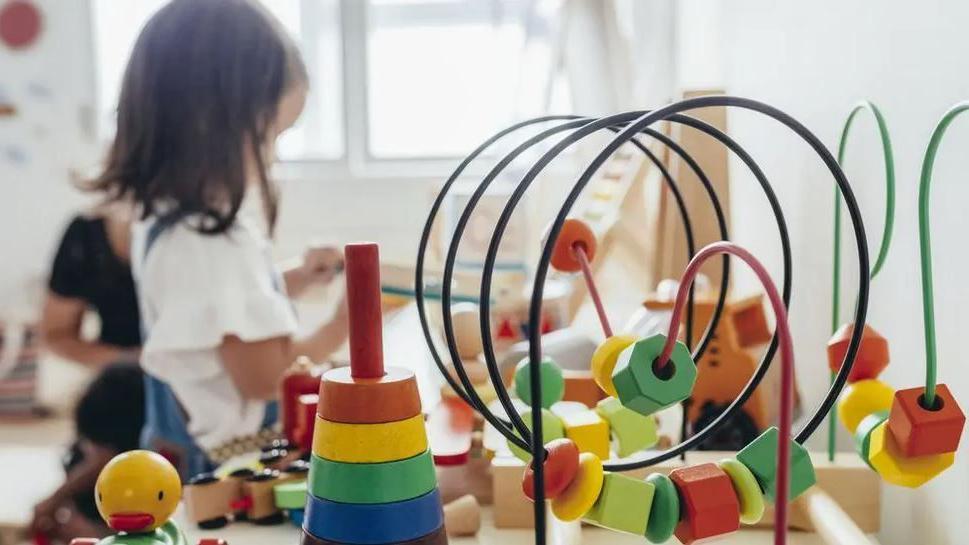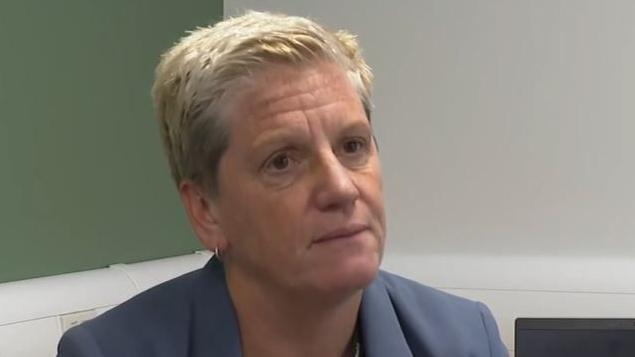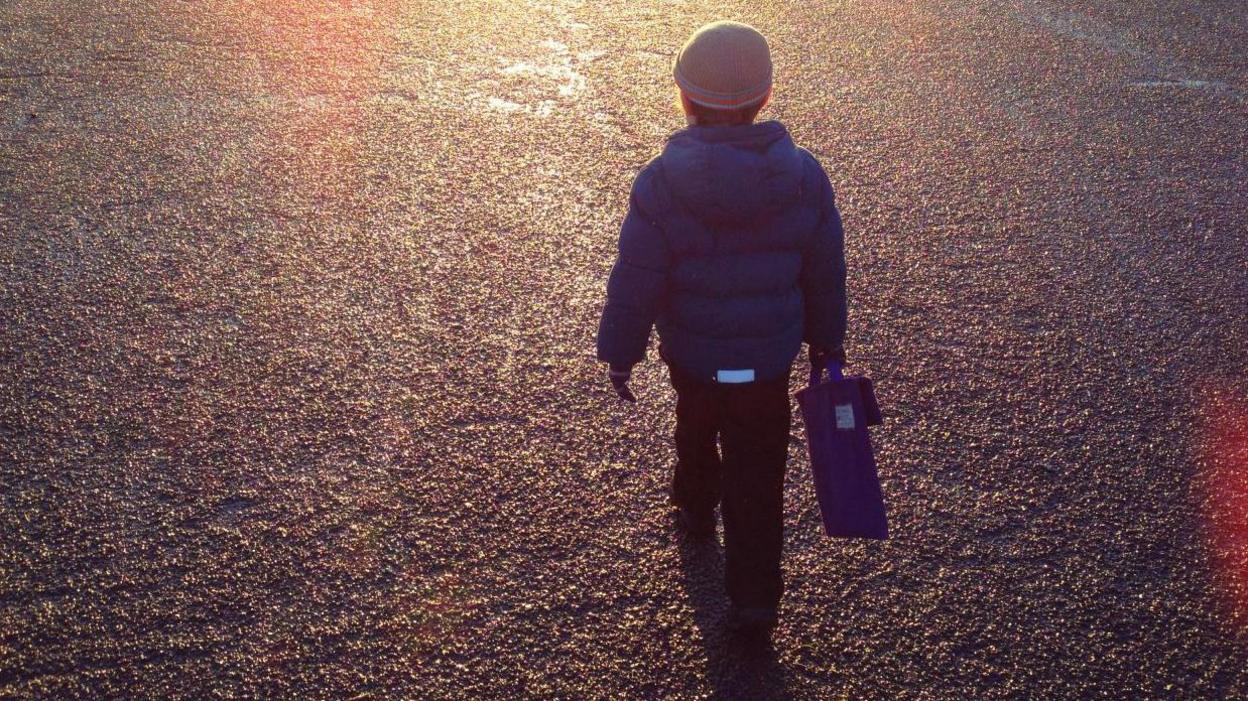Children starting school 'in nappies and buggies'

A report found a third of children were not prepared for school
- Published
Children who spent their early years in lockdowns are starting school with "poor social and developmental skills" caused by screen time and isolation, education leaders have said.
Prof Judy Clegg, a speech therapist at the University of Sheffield, said many reception class entrants lacked "school readiness".
A report co-authored by Prof Clegg and produced by the Centre for Young Lives and Child of the North think tanks found that some new starters were still wearing nappies and using pushchairs.
The report has called for families to be given more support and help to ensure that children are prepared for the school environment.
Sheffield teacher Emma Porter, an early years lead at St Catherine's Catholic Primary School, agreed that many children she taught did not have the necessary communication skills to mix with others.
The report found almost a third of four-year-olds could be classed as "not ready" for full-time classroom learning.
Ms Porter said: "We have seen a decrease in children's ability to communicate with others, with developing their friendships, with their resilience when things are tricky, and talking as well."

Professor Judy Clegg worked on the report about child development in England
She said an increased use of screens during lockdowns could be to blame.
"During the pandemic, children had more access to screens and parents were working from home, so children were having to do something while that was happening.
"I wonder if screens has a lot to do with fewer interactions, and adults not being available to talk to their children. "
She added that children during this time would have seen fewer "models" of people talking to each other or being outdoors and exploring the world around them.
Anne Longfield, founder of the Centre for Young Lives, said: "I have heard many concerning experiences from school staff about children arriving at reception wearing nappies, still using buggies, and unable to communicate at the expected level or to socialise with other children.
"Some of these children have developmental problems, struggle with speech and behaviour, and can require significant extra attention and support from already overstretched schools."
'Silver bullet'
Ms Porter said at her school pushchairs and toilet training were not a particular issue, but communication was.
Prof Clegg added: "Our children are very much our future, so if we can get things right in these early years, then they can go on to thrive.
"If we are thinking about economic terms, if they are not progressing through their education they are less likely to gain employment to generate the economic prosperity that we want."
Paul Whiteman, general secretary at school leaders' union NAHT, said: "The disruption caused by the pandemic undoubtedly had an impact on the development of some young children, and many school leaders have reported concerns around speech and language development in particular.
"High-quality early years education is one of the nearest things we have to a silver bullet in education, and is vital in helping to narrow the gap between children from disadvantaged backgrounds and their peers."
He added it was positive that the new Labour government had made clear that early years was among its top priorities.
Listen to highlights from South Yorkshire on BBC Sounds, catch up with the latest episode of Look North or tell us a story you think we should be covering here, external.
Related topics
More stories like this
- Published14 April 2024
